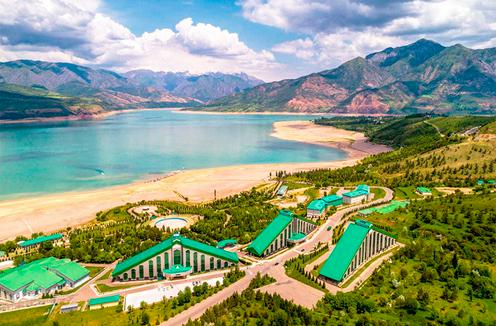On July 30, President Shavkat Mirziyoyev signed a law approving Uzbekistan’s new Water Code.
The Water Code sets the foundation for state policy on the rational use, reproduction, and protection of water, water bodies, water infrastructure, and lands within the country’s water fund, according to the Ministry of Justice.
Under the new legislation, water is recognized as a national asset that must be used efficiently and protected by the state.
The Code clearly distinguishes between categories of water use. General use—such as for drinking, household needs, bathing, watering livestock, and recreational fishing—is allowed freely, without permits or restrictions. Special use, on the other hand, requires official authorization.
Water bodies include all surface and underground water resources in Uzbekistan, including transboundary bodies of water that flow through or lie within national territory. These can be used either individually or jointly.
To manage water resources, the law provides for the creation of Water Councils at both the national and basin levels, and, where needed, at the regional level. A Republican Water Council will also be established under the Cabinet of Ministers.
The law introduces the concept of a water servitude—granting the public the right to access water for passage, watering and grazing livestock, and use of shoreline areas.
Water bodies may be allocated for permanent or temporary use, including through public-private partnership agreements. Temporary use must range from 3 to 49 years.
The Code places special emphasis on enforcement. It imposes fines on legal entities for violations of water withdrawal regulations. For every 1,000 cubic meters of water taken above the permitted limit, a fine equal to 20% of the base rate (which will be 412,000 Uzbek soums, or about $33, starting August 1) will be levied. The fine increases to 30% if there is no contract, 5% if there is no metering equipment, and 40% if water is taken without a special permit. Repeat violations within a year will incur a fivefold increase in fines.
The law will come into force three months after its official publication, in November 2025.
Currently, water resource management in Uzbekistan is governed by around ten laws—including the Constitution, the laws “On Water and Water Use” and “On Environmental Protection”—as well as more than twenty subordinate acts. While these legal instruments laid the groundwork for water regulation, they failed to establish a unified, coordinated system of legislation. According to parliamentary discussions, the new Water Code consolidates key norms into a comprehensive legal document aimed at the systematic regulation of water use and conservation.










